As the world continues to recover from the impact of COVID-19 and navigates ongoing geopolitical crises, people everywhere are rethinking how to advocate for social, political, environmental, and economic rights. Social movements are stepping up, exploring innovative ways to create change and empower communities.
Across Africa, Bitcoiners are leading this charge, driving social change with support from grants by the Human Rights Foundation (HRF). The HRF, a nonpartisan nonprofit, promotes and protects human rights globally, with a focus on regions under authoritarian regimes.
This piece will highlight the 20 global projects supported by HRF grants on September 17, each working to enhance technical education, decentralize mining, and offer private financial solutions for people living under oppressive governments.
HRF Awards grants to 20 global Bitcoin Projects promoting Human Rights
The Foundation awarded 10 BTC (1 billion satoshis) to 20 global projects, focusing on Bitcoin development in regions under authoritarian regimes, with key initiatives in Africa, Latin America, and Asia.
They are as follows:
1. African Bitcoiners
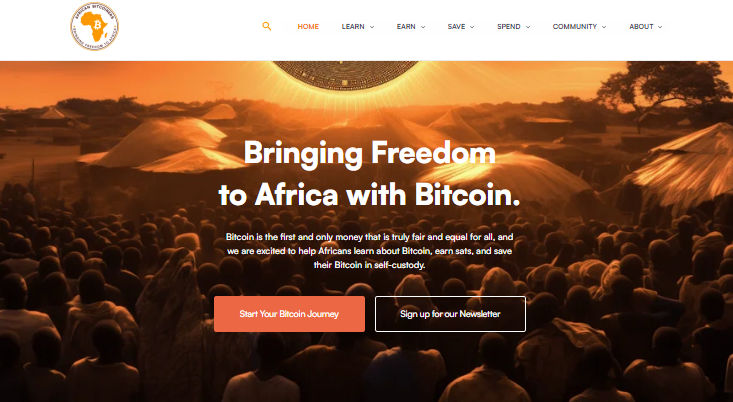
African Bitcoiners is a community dedicated to onboarding fellow Africans onto Bitcoin. Focused on education and accessibility, they offer a free “Bitcoin for Beginners” course and tools like free Lightning payment routing for merchants.
The team, who prioritize privacy and security, believe Bitcoin can be a path to financial sovereignty in a region facing political and economic challenges. The HRF grant will help them expand their educational efforts and empower even more people with the knowledge and tools to utilize Bitcoin effectively.
2. Kiveclair
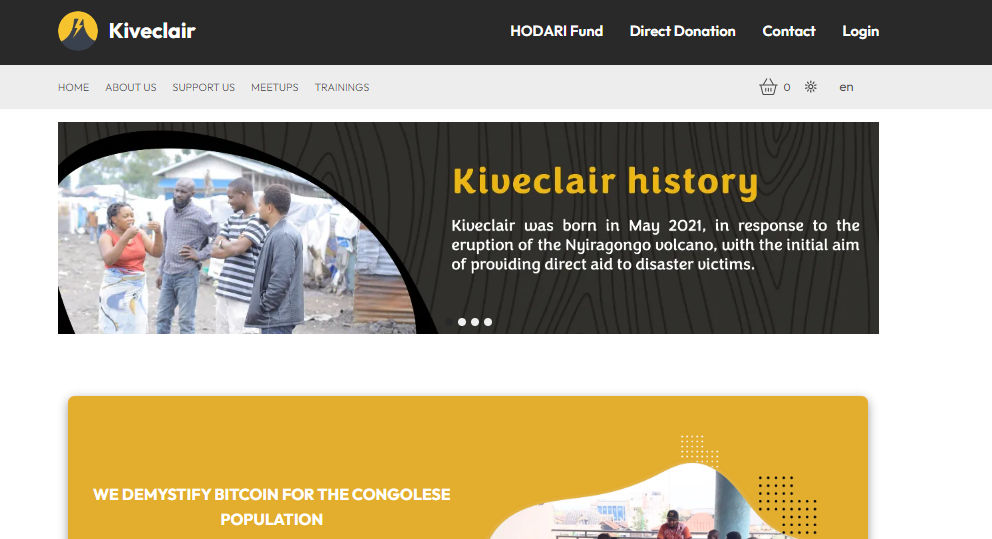
In the Democratic Republic of Congo, Kiveclair is a community using Bitcoin to empower individuals amidst instability. Led by Gloire Wanzavalere, they host meetups, training sessions for activists and developers, and provide shelter to refugees.
The grant will help them expand their workshops, acquire equipment, and host a local conference, strengthening their impact in the region.
3. Stratospher

Stratospher is a Bitcoin Core developer dedicated to making Bitcoin even more private and secure. They’re working behind the scenes to improve the peer-to-peer network, ensuring that people can transact without fear of surveillance.
Not only that, but they’re also reviewing critical code and mentoring new developers, strengthening the very foundation of Bitcoin. Their work is vital in protecting users from censorship and ensuring that Bitcoin remains a tool for freedom. The HRF grant will allow Stratospher to focus entirely on these crucial development efforts.
4. Nostr
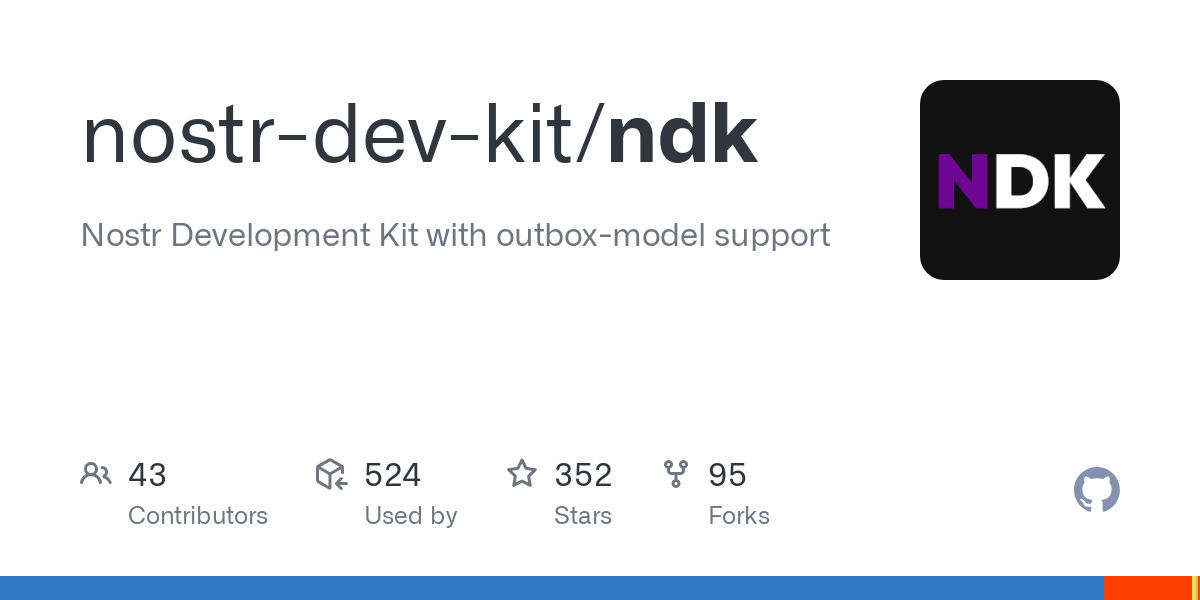
Jeff Gardner is on a mission to make Nostr, a decentralized social media protocol, even more secure. He’s developing end-to-end encryption for direct messages and group chats, ensuring that conversations remain private and resistant to censorship. This is particularly crucial for activists and individuals living under repressive regimes.
The HRF grant will fuel this vital work, allowing Gardner to continue development, incentivize community contributions, and conduct a thorough security audit to guarantee the highest level of protection for users.
5. Coracle
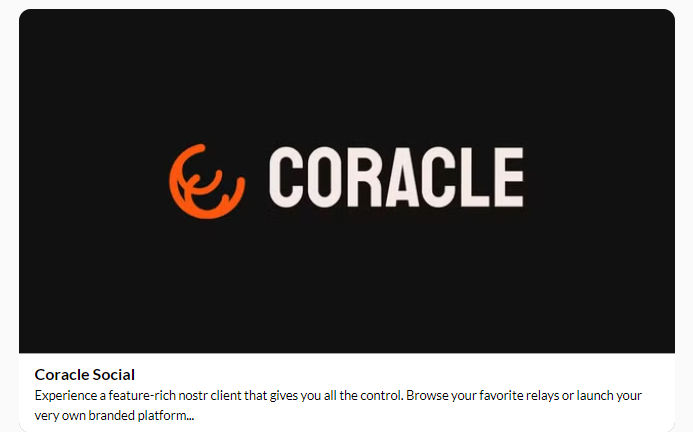
Coracle, developed by hodlbod, is a Nostr web client aiming to revolutionize social media. Imagine customizable feeds, enhanced privacy in direct messages, and encrypted communities, all resistant to censorship. This means activists and individuals can connect and communicate freely, without fear of their voices being silenced.
The HRF grant will allow Coracle to bring on a full-time developer, accelerating the development of this promising platform for free expression.
6. Harbor
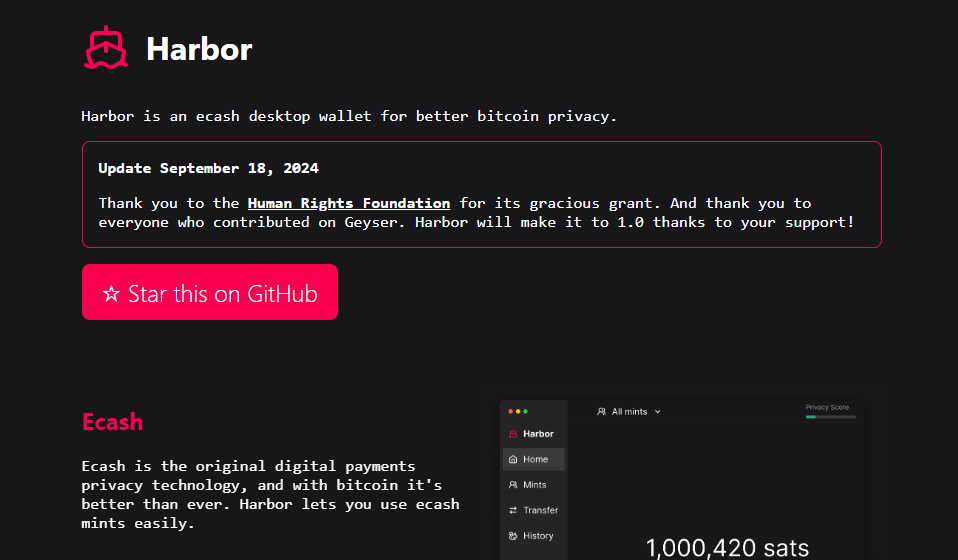
Developed by the team behind Mutiny Wallet, Harbor is an open-source eCash wallet designed with privacy in mind. Now an independent project led by Ben Carman and Paul Miller, Harbor offers a unique approach to safeguarding Bitcoin transactions. It incorporates multiple mints, operates exclusively over the Tor network, and automates fund management, making it a powerful tool for those seeking enhanced financial privacy.
This grant will support Harbor’s 1.0 production release, ensuring this vital privacy-enhancing technology reaches the hands of those who need it most.
7. EttaWallet
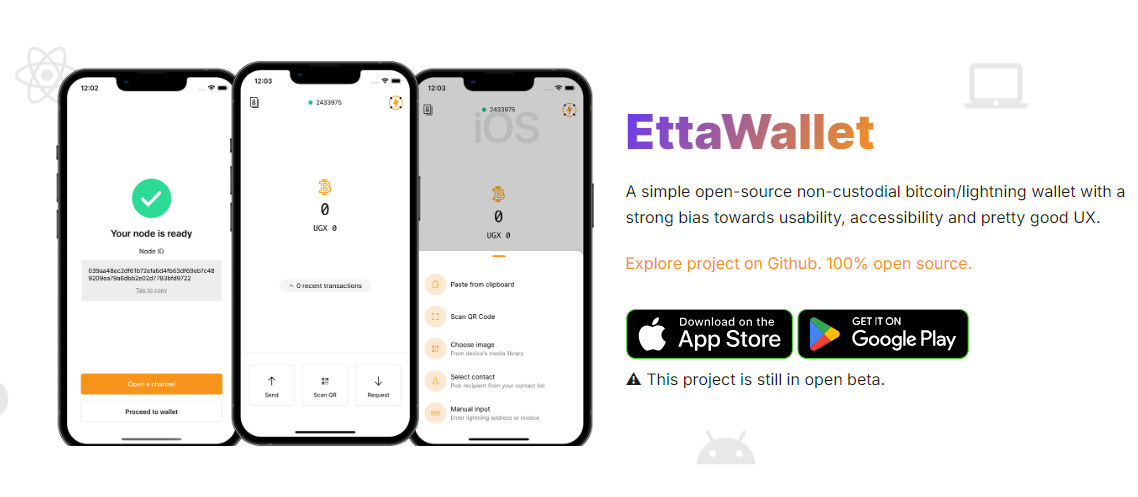
Collin Rukundo, a software developer and co-founder of Splice Africa, aims to bring financial freedom to the Global South with EttaWallet. It’s an open-source, self-custodial mobile Lightning wallet designed for ease of use and accessibility.
Rukundo believes that everyone should have control over their own money, and EttaWallet is his way of challenging the dominance of custodial wallets that often limit user freedom. The HRF grant will fuel further development, improve localization efforts to reach more people, and help foster a thriving community around the wallet.
8. The Tor Project
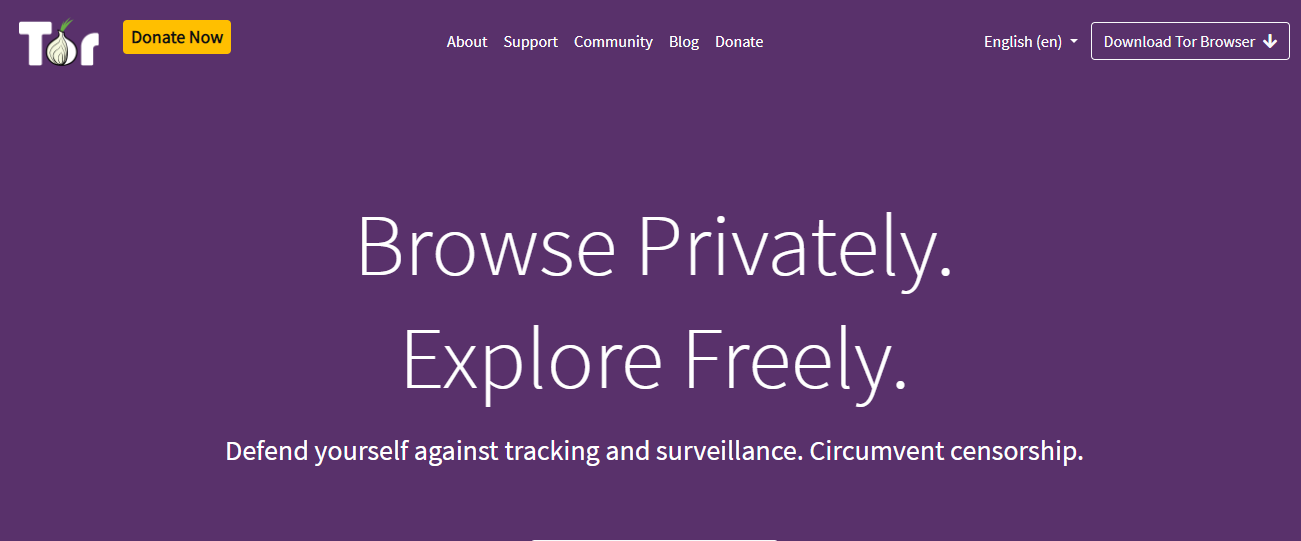
The Tor Project is in works for online privacy and freedom, especially for activists and those using tools like Bitcoin. This grant supports Tor relay operators, the backbone of the network, allowing them to strengthen the system against attacks and improve reliability.
This means better protection for everyone who relies on Tor to access information and communicate securely, including those using Bitcoin and Lightning Network through onion services.
9. Rikto
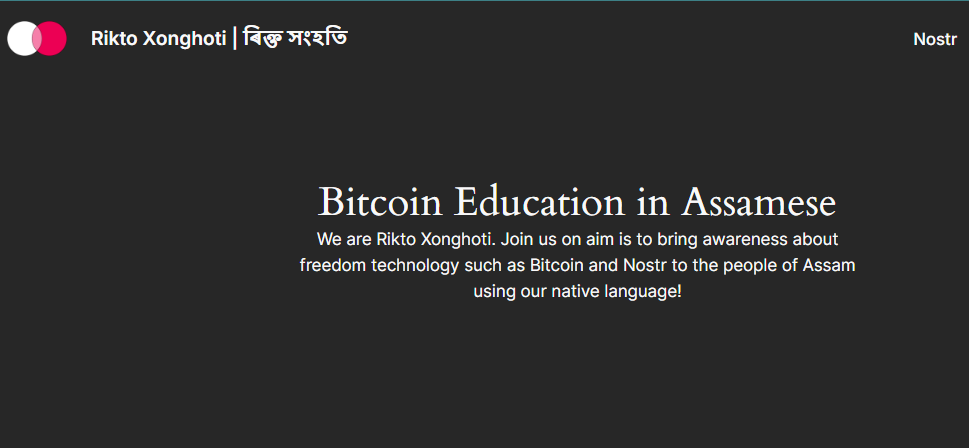
Rikto Xonghoti is bringing Bitcoin education to Assam, India, a region often overlooked. Led by Anurag Saikia, Basanta Goswami, and Pallab Goswami, they’re not just teaching people about Bitcoin; they’re aiming to build a whole Bitcoin circular economy.
They offer online courses in the local Assamese language and are building a physical Bitcoin center in the town of Titabar. The HRF grant will help pay teachers, support the center, and even buy Bitcoin nodes and mining equipment to boost the local economy. It’s a grassroots effort with a big vision: to empower a community with the knowledge and tools to thrive in the digital age.
10. YesBitcoinHaiti
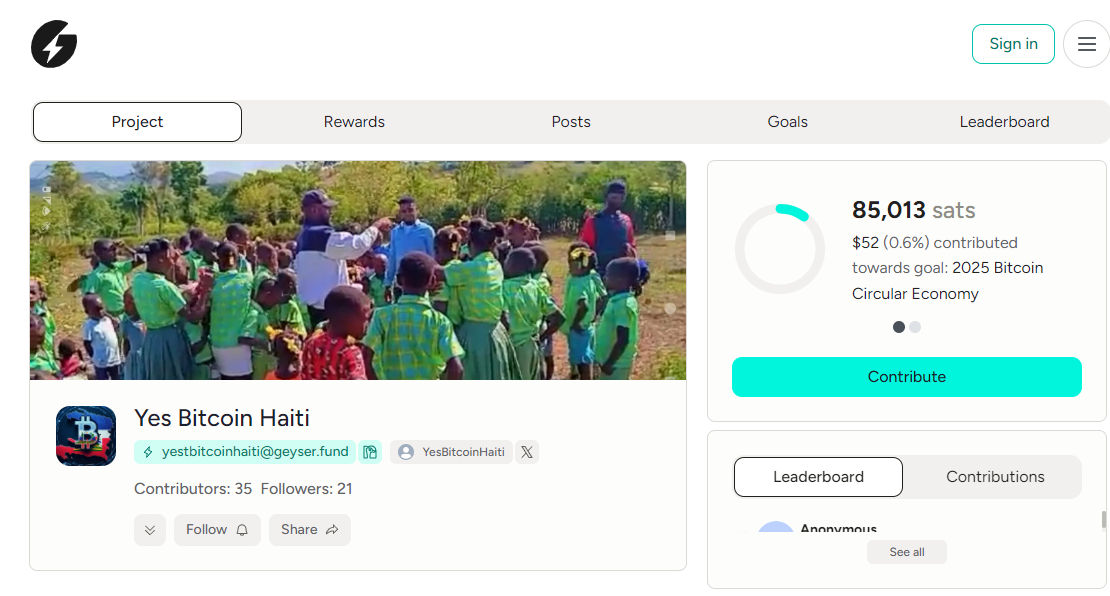
YesBitcoinHaiti is a new project led by Val, Papouche, and Armand, aiming to empower Haitians with Bitcoin knowledge amidst political and financial crisis. They plan to complete the Bitcoin Diploma course, translate materials into Haitian Creole, and host workshops.
The HRF grant will support their salaries, equipment, and educational material production.
11. Bitcoin Indonesia
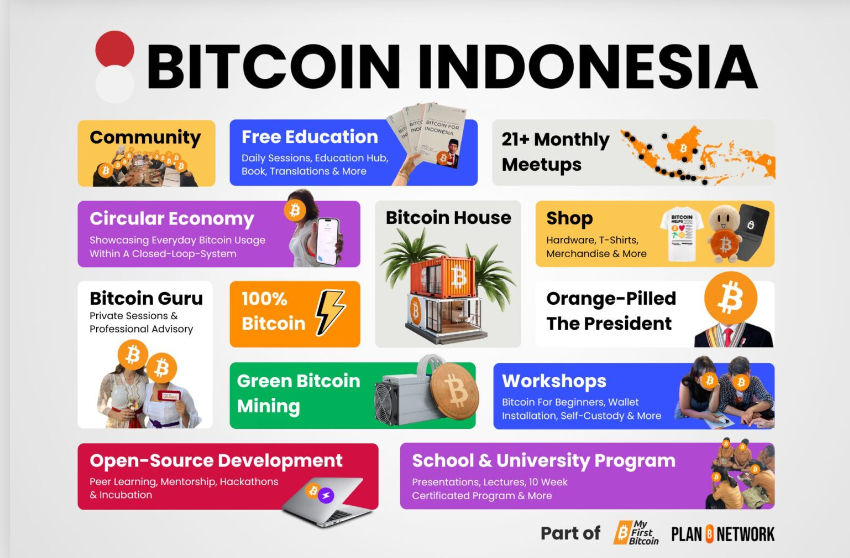 Dimas, Marius, Keypleb, and Diana are the driving force behind Bitcoin Indonesia. They’re building an educational platform in Bahasa Indonesia, growing the local Bitcoin community, and connecting talented individuals with Bitcoin-related job opportunities. They’ve also hosted Indonesia’s largest Bitcoin conference!
Dimas, Marius, Keypleb, and Diana are the driving force behind Bitcoin Indonesia. They’re building an educational platform in Bahasa Indonesia, growing the local Bitcoin community, and connecting talented individuals with Bitcoin-related job opportunities. They’ve also hosted Indonesia’s largest Bitcoin conference!
The HRF grant will support their efforts in content creation, community outreach, and operational expenses.
12. Bitcoin++
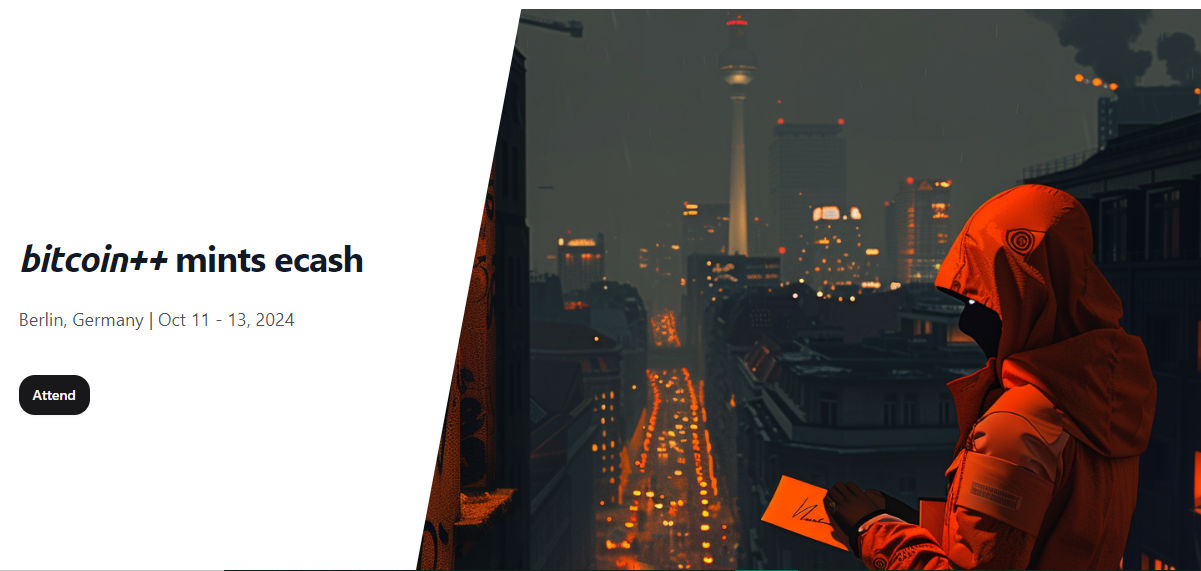 Lisa Neigut organizes Bitcoin++, a conference series dedicated to Bitcoin development. It features in-depth lectures and workshops for experienced developers.
Lisa Neigut organizes Bitcoin++, a conference series dedicated to Bitcoin development. It features in-depth lectures and workshops for experienced developers.
The HRF grant will help developers from authoritarian countries attend the upcoming “mints ecash” conference in Berlin, focusing on the intricacies of eCash technology.
13. TABConf
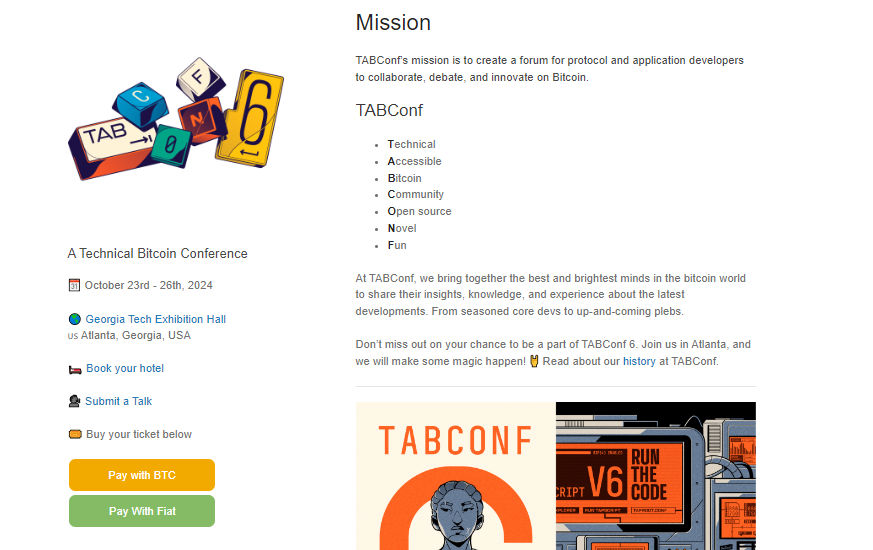 Michael Tidwell’s TABConf in Atlanta brings together Bitcoin developers for workshops and collaboration.
Michael Tidwell’s TABConf in Atlanta brings together Bitcoin developers for workshops and collaboration.
The HRF grant will help cover conference costs and travel expenses for developers who need financial assistance, fostering innovation within the Bitcoin community.
14. BalticHoneybadger
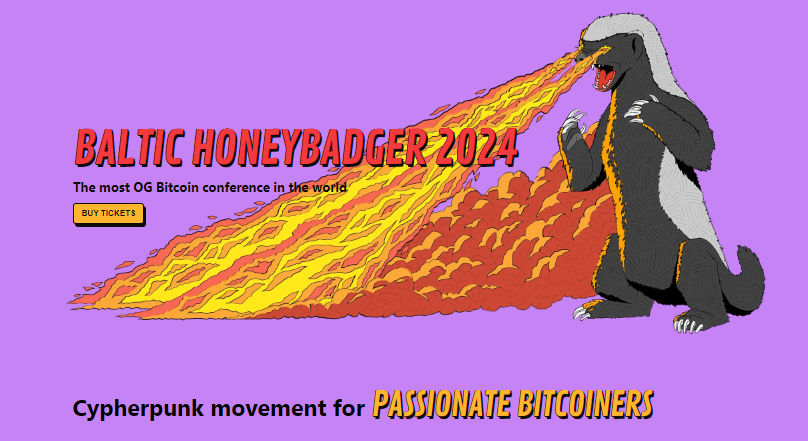 Hodl Hodl hosts BalticHoneybadger, a non-profit Bitcoin-only conference with cypherpunk roots, focusing on financial freedom and privacy, especially under authoritarian regimes.
Hodl Hodl hosts BalticHoneybadger, a non-profit Bitcoin-only conference with cypherpunk roots, focusing on financial freedom and privacy, especially under authoritarian regimes.
The HRF grant will fund travel for activists to learn how to use Bitcoin as a tool for human rights.
15. Labitconf
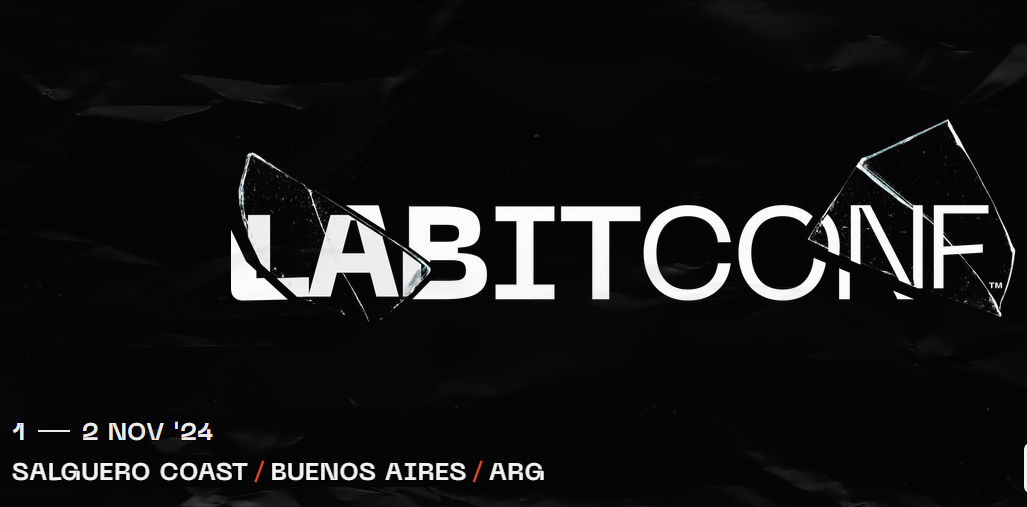
In Argentina, Rodolfo Andragnes hosts LaBitconf, the longest-running Bitcoin conference in Latin America. The HRF grant will help fund travel for developers and speakers, making this vital educational resource more accessible. They also support Descentralizar, a one-day event held in three cities.
These conferences help Argentines explore Bitcoin for financial freedom amidst economic hardship.
16. Silentium
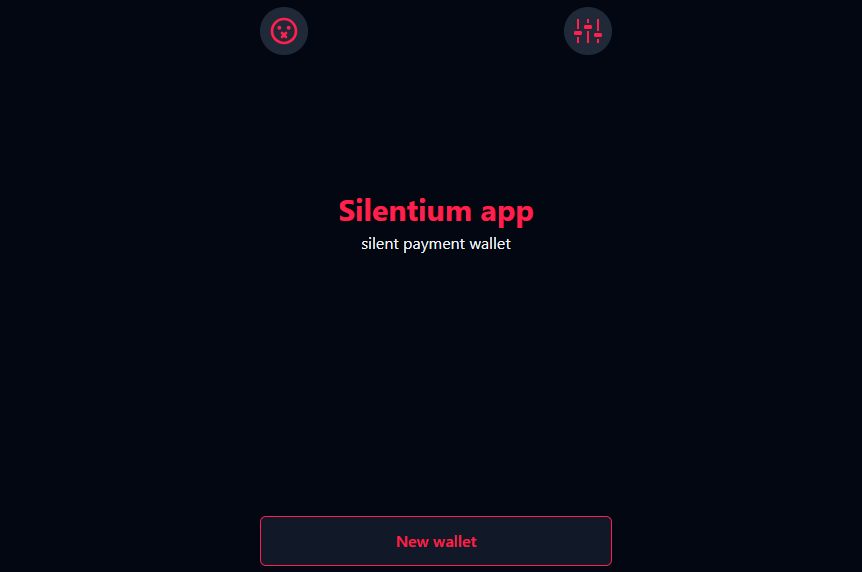 Silentium is a privacy-focused Bitcoin wallet with built-in Silent Payments, developed by Louis Singer. It protects activists by letting them receive Bitcoin donations through unique addresses, preventing surveillance regimes from linking transactions to their identities.
Silentium is a privacy-focused Bitcoin wallet with built-in Silent Payments, developed by Louis Singer. It protects activists by letting them receive Bitcoin donations through unique addresses, preventing surveillance regimes from linking transactions to their identities.
The grant will support infrastructure like a cloud node and web server, and help hire a software developer.
17. Satsconf
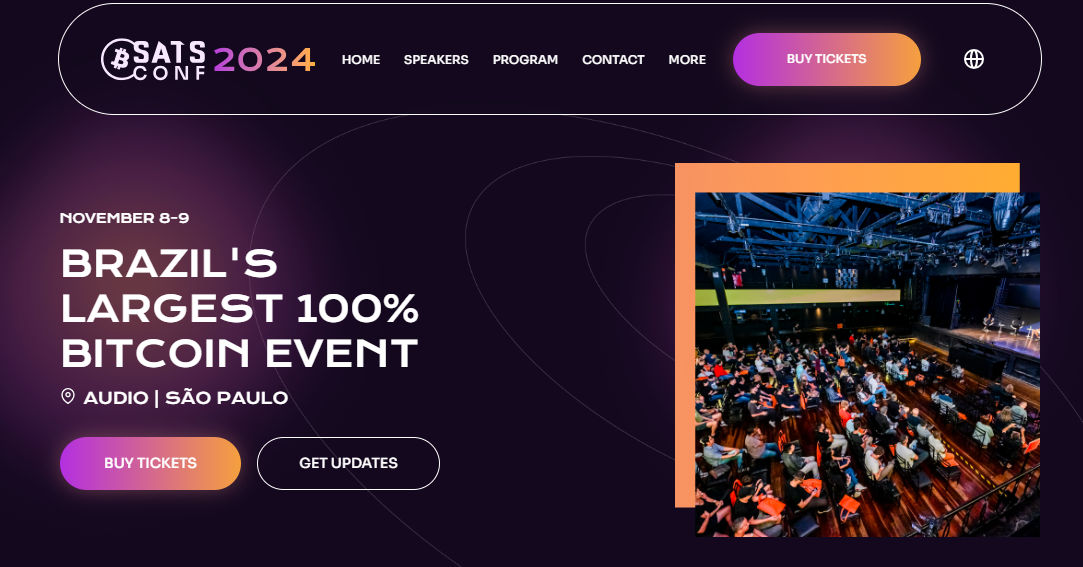 Satsconf, organized by Lucas Ferreira, is South America’s largest Bitcoin-only conference. Held in São Paulo, it connects the local community with global Bitcoin leaders.
Satsconf, organized by Lucas Ferreira, is South America’s largest Bitcoin-only conference. Held in São Paulo, it connects the local community with global Bitcoin leaders.
The HRF grant will help fund speaker travel, event logistics, and the hackathon.
18. Solidarity Summit
Hager Eissa is organizing the Solidarity Summit while standing with Political Prisoners in Vienna. This event brings together former political prisoners and human rights advocates to address the challenges they face and promote change.
With HRF’s support, the summit will include a financial freedom component and a documentary to highlight these issues. The grant will cover event logistics, program development, speaker fees, and film production.
19. BTC Shule
In Burundi, Belyï Nobel Kubwayo’s BTC Shule is fighting censorship by teaching people how to use Bitcoin for uncensorable payments. They’re building a bilingual online learning platform, a physical meetup center, and support groups.
The HRF grant will fund the platform’s development, educational materials, and the center’s establishment.
20. The 256 Foundation
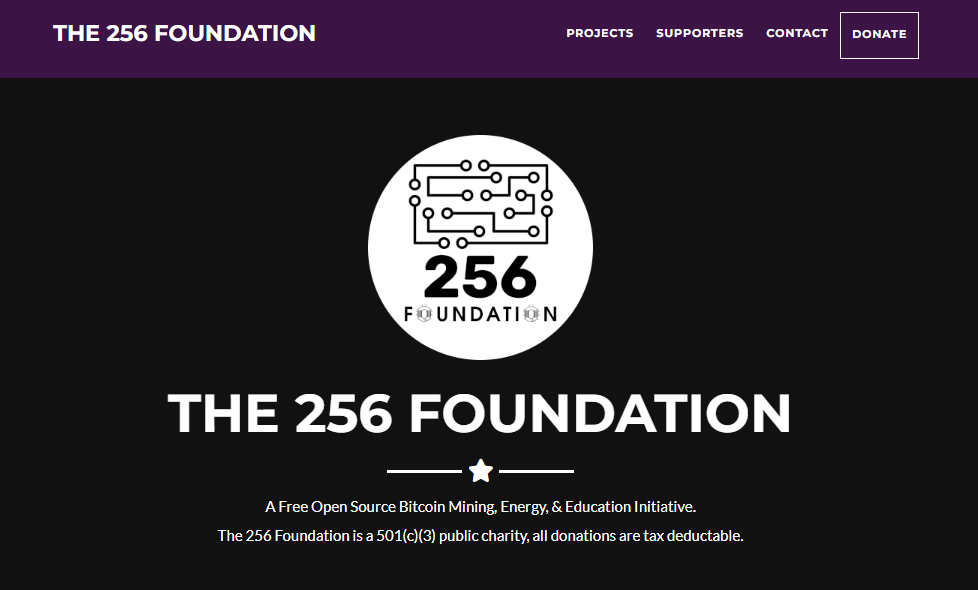
The 256 Foundation is on a mission to make Bitcoin mining more accessible. Their Bitaxe initiative provides a low-cost entry point for home mining, even in places where surveillance and restrictions are common.
This grant will help them improve Bitaxe and make it compatible with more ASIC manufacturers, furthering their goal of open and accessible Bitcoin mining for everyone.
The bigger picture for Africa
So, what does all this mean for Africa? It’s simple: these Bitcoin projects are more than just cool tech; they’re reshaping how people interact with money on the continent. With backing from organizations like HRF, people are finding ways to use their money and build a better future, as well as standing up for human rights.
Think about it: Bitcoin lets you bypass those old banking systems which also means inflation and corruption are fortunately a minus. Plus, the digital coin gives you more privacy and control—who wouldn’t want that?
Sure, there are still challenges. Governments might try to get in the way, and not everyone understands Bitcoin yet. But the possibilities are huge. Imagine a world where everyone has access to financial tools, where entrepreneurs can thrive, and where activists can operate without fear. That’s the kind of future Bitcoin can help build in Africa.
We think this is just the beginning. As more people join the movement, the impact will only grow stronger. And that’s something worth getting excited about.
…..
The HRF continues to raise support for the Bitcoin Development Fund, and interested donors can find more info on how to donate bitcoin here. Applications for grant support by the HRF can be submitted here.
